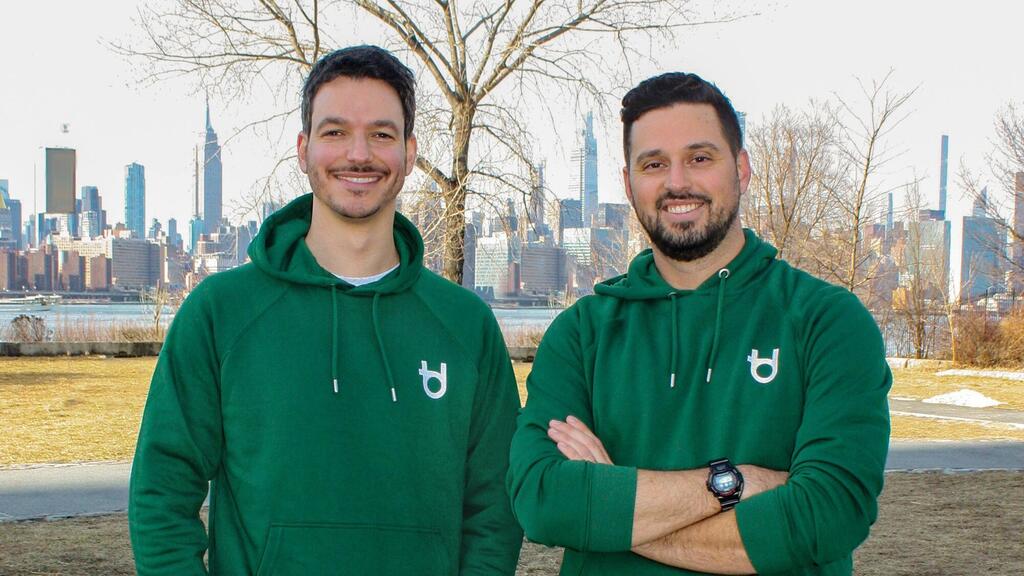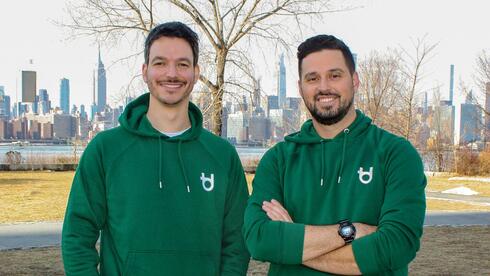
A $35 million VC fund was born at a Gaza war crossing
Israeli VCs David Citron and Alan Buch launched TBD VC after a chance wartime reunion — with a mission to back startups and support returning soldiers.
In the middle of Israel’s war with Hamas, amid sand, sweat, and sudden violence, two longtime friends — both venture capitalists — crossed paths at the Zikim military crossing, a checkpoint along the Gaza border. One, David Citron, had been deployed into combat. The other, Alan Buch, had flown in from New York to deliver supplies to soldiers.
That unlikely reunion would spark the creation of TBD VC — a new $35 million fund aimed at backing the next generation of Israeli startups. Its name, short for “To Be Determined,” is a nod to the ambiguity and possibility that defines the early stages of building a company — and, in this case, the aftermath of national trauma.
Now officially launched, the fund plans to write $1 million checks to roughly 20 companies founded by Israeli entrepreneurs in fields such as cybersecurity, enterprise software, and technical infrastructure. It’s an effort rooted not only in opportunity, but in the emotional and moral weight of wartime experience — and a rare example of venture capital taking shape as both economic catalyst and personal reckoning.
“When you’re deep in combat in Gaza, you completely forget what normal life looks like,” Citron told Calcalist. “That surprise encounter with Alan sparked something big.”
From combat boots to cap tables
TBD is backed by a mix of U.S. and Israeli institutional investors, family offices, and leading Israeli cyber entrepreneurs. But it’s also investing in something less tangible: a national story still being written. Among its initiatives is a commitment to donate a portion of fund profits to Back the Warrior, an Israeli nonprofit focused on helping discharged soldiers build tech careers.
That mission is deeply personal for Citron, who served in continuous reserve duty during the Swords of Iron War and returned home with a new sense of purpose. “During the war, I met thousands of people, and sadly, most weren’t connected to tech,” he said. “We’re now working on creative ways to help.”
It’s a pledge that feels especially urgent at a time when Israel’s innovation economy — long hailed as the Startup Nation — faces renewed tests. The tech sector is recovering from a capital pullback in 2022–23, while many of its most promising young talents have spent the past year in uniform, not offices.
Buch, whose background includes senior roles in wealth management and alternative investing, sees the fund as a long-term bet on the country’s resilience. At a previous family office, he helped manage over $4 billion in assets and oversaw early investments in tech companies like Spotify, SpaceX, and Hive AI.
“After October 7, I couldn’t just sit in Brooklyn doing nothing,” he said. “I got on a plane to Israel and traveled across the country to find ways I could help. Since we’re both investors, we decided to channel that energy into a fund focused on Israeli innovation.”
Related articles:
Betting early, influencing often
TBD VC’s investment thesis centers on the pre-Seed and Seed stages — the earliest and most uncertain moments in a company’s life. But its differentiator may be what happens after the check clears. The fund has launched a Venture Partner program that ropes in executives from major global players like Epic Games, Fanatics, Atlassian, GitHub, Twilio, American Express, and Netflix. These advisors, often alumni of top product and engineering teams, work closely with portfolio founders on go-to-market strategy and early product execution.
Citron’s track record suggests a sharp eye for such opportunities. His past investments include companies like CyberX (acquired by Microsoft), Flow Security (acquired by CrowdStrike), and rising players like Frontegg and Upwind. Citron previously co-founded the Sheva VC with former NBA player Omri Casspi before the latter decided to leave to form his own fund.
The symbolism of “To Be Determined” runs deeper than just startup uncertainty. It reflects a country — and its tech sector — still finding its next chapter. In the face of war, political instability, and an ever-shifting global venture climate, Citron and Buch are making a bet not only on Israeli innovation, but on the people who will carry it forward.
